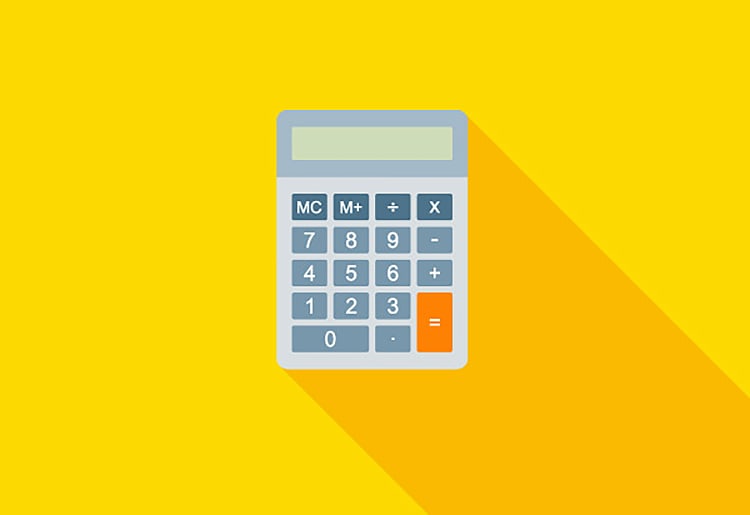If your mortgage is proving too expensive, one option is to refinance the loan for better terms. While it is tempting to sign on to a lower interest rate, don’t forget to take into account the fees – and to calculate both sides of the ledger to determine if your refinancing makes overall sense.
Why Might I Want to Refinance?
Refinancing involves a new lender (or your existing lender) agreeing to pay off your old mortgage, in exchange for a new mortgage at a lower rate.
This is a period of historically low interest rates. Until 2010, the idea of a home loan being offered at less than 5% was unlikely. Before 2000, anything under 8% was almost impossible. And from 1979 to 1990, the annual interest rate on a 30-year fixed-rate mortgage never dipped below 10%.
If you signed on a home loan at any time before 2011, you likely did so at a significantly higher rate than those offered today. If, for example, you signed in 2007 when the average 30-year loan was 6.34%, and you now refinance at the current average- around 4.1%- this would translate to monthly savings of around $450 on your payments.
What Are the Risks?
There are two sides to every story, and, in the case of refinancing, the other side of the story is the cost. While the lure of saving several-hundred dollars a month in interest payments sounds (and often is) sensible, it should be weighed carefully. A main thing to consider is closing costs. These are fees charged by the lender for services such as title policies, inspections, and recording fees. Closing costs can typically reach 2-5% of the amount of the home loan. In the case of a refinancing you should expect these fees to amount to around 1-2% of your loan total. Therefore, when refinancing, calculate how long it will take to recover the closing costs through those lower monthly mortgage repayments.
What Other Costs and Fees Are There?
As with a new home loan, fees and requirements vary by lender. Below is a list of fees you can expect to be charged:
Mortgage application fee: This is an unavoidable fee that everybody must pay when taking out a mortgage. The fees range from $250 to $500, the amount the lender calculates to cover loan processing and credit check.
Origination fee: This fee is for the lender’s work in evaluating and preparing the loan, and typically is 1% of the loan amount. Therefore, if you refinance for a loan balance of $100,000, your origination fee will be $1,000. You may be able to negotiate a little on the origination fee, but know that some lenders will also add a document preparation fee of up to $500.
Appraisal fee: Most lenders require an appraisal for the value of your home. Many will charge you upfront, and the cost can range from $300 to $600. The results can impact whether you qualify for refinancing. If the appraisal determines that your home’s value has fallen too low, they may ask you to make up the difference in cash or to buy mortgage insurance.
Title search and title insurance: Some lenders require a title search ensuring no one has a claim on your property. This can cost up to $400. Title insurance provides the homeowner with protection against other claims, and can cost anywhere from $400 to $800.
You might encounter other fees specific to the region where your home is, such as flood certification: a fee of up to $150, which is compulsory for homes in certain areas.
How Does the Process Work?
When refinancing a new loan, expect to go through a similar process and to hand over the same documentation as you did when you applied for the original loan. The lender will want to see that you are creditworthy, and that you have the income and savings to be able to pay your loan. They will want to see things like W2 income tax statements, pay stubs, credit card reports, and statements from your bank accounts or investment accounts. In addition, they will want to see copies of personal documents, such as your driver’s license. You will need to give the lender the necessary documentation to allow them to carry out a credit check.
Given All the Above, is Refinancing Right for Me?
There is an old rule that refinancing is worth it if your new rate is 2 percentage points lower than your old rate (i.e. if your original rate was 6%, your new rate must be 4% or lower). However, professionals say that refinancing can sometimes be worth it if the new loan is even 0.5 percentage points lower than the old one.
The rule of thumb is to assess what works for you. First, ask yourself if refinancing is the right option and check the costs.
Typically, home owners will refinance for one of three reasons: to take advantage of lower rates; to move from an adjustable rate mortgage to a fixed-rate loan in order to have more financial certainty, or to capitalize on increased home value.
When shopping between lenders, don’t forget to compare the improved rates against all the fees. If you calculate that your savings will cover all the fees in a reasonably short time, then refinancing could the right decision.
Check out our reviews of the leading mortgage lenders for more information on your refinancing options.

